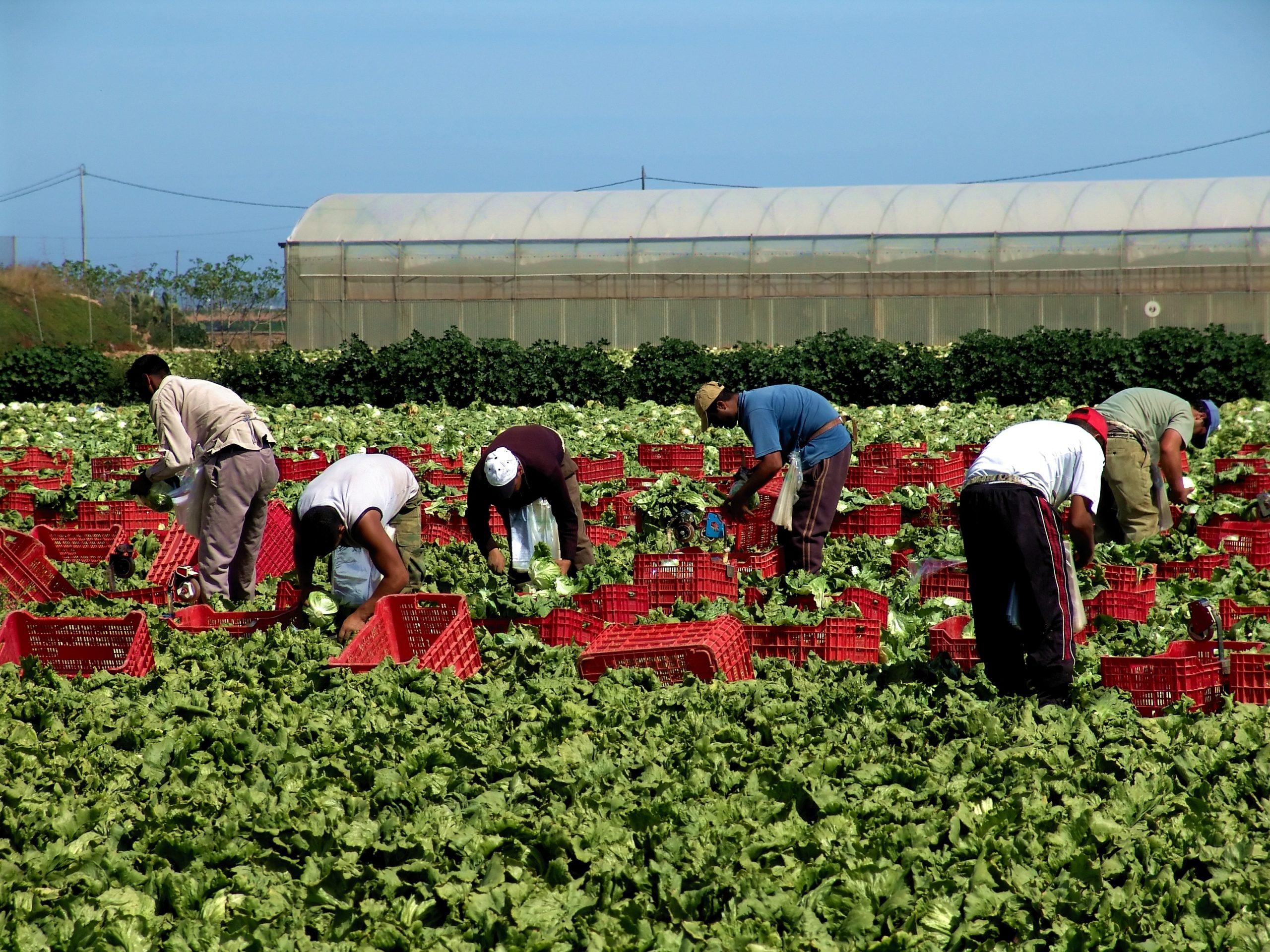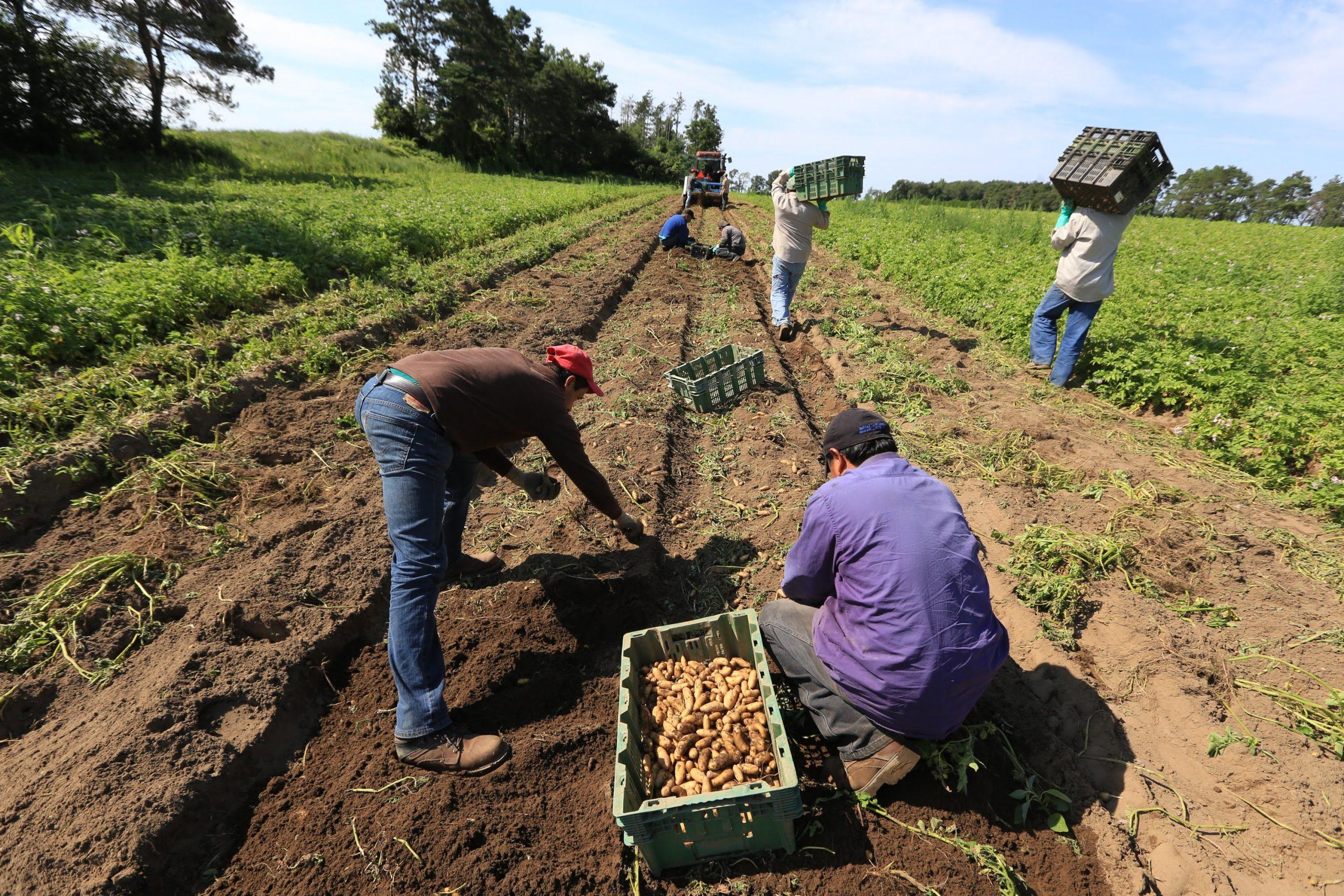Labour
Growers hire Canadians first, and conduct ongoing and rigorous recruitment. Labour advocacy is important for the future of our industry.
ENSURING LABOUR STABILITY FOR CANADA’S FRESH PRODUCE SECTOR
Labour shortages are one of the most urgent threats to the availability, affordability, and diversity of Canadian-grown fruits and vegetables. Without urgent improvements to international worker programs, growers will be unable to secure the workforce they need to harvest perishable crops—leading to higher food prices, more waste, and increased reliance on imports.
THE ISSUE
Horticulture is the most intensive labour sector in agriculture.
Fruit and vegetable production depends on manual work at every stage—from planting and pruning to hand-harvesting, grading, and packing. Many crops require repeated harvests within tight timeframes, and delicate produce can’t be picked by machine without damage. In Canada, fruit and vegetable growers face persistent labour challenges, with a peak-season vacancy rate of 12% in 2022, amounting to approximately 6,300 unfilled jobs and an estimated $260 million in lost sales.
When growers can’t access sufficient labour, they face financial strain, reduced crop yields, and disrupted supply chains. These pressures not only hurt growers’ businesses but also reduce the amount of fresh, Canadian-grown produce available to consumers, leading to higher prices and fewer choices at the grocery store.
KEY FACTS
- Labour shortages are intensifying: The fruit and vegetable industry faces the highest vacancy rate in agriculture at 11%, with over 6,300 unfilled positions during peak season in 2022. Despite increased foreign worker employment, the sector is still projected to face over 5,100 vacant positions by 2030.
- Temporary foreign workers are the backbone of production: Nearly 28,000 foreign workers—representing 40% of all agricultural foreign workers—support Canadian fruit and vegetable farms annually. They account for almost half the industry’s workforce, filling critical roles that remain vacant despite domestic recruitment efforts, with 43% of employers receiving zero domestic applicants.
Without a reliable workforce, Canada risks losing domestic production capacity—undermining food security, rural economic development, and trade opportunities.
WHAT FVGC RECOMMENDS
- Preserve and Strengthen the Seasonal Agricultural Worker Program (SAWP)
SAWP has operated for more than 50 years through bilateral agreements with participating countries. It is a proven model that includes annual reviews and strong accountability mechanisms. Canada should build on this success when making reforms to other temporary worker programs, instead of creating new or duplicative processes. - Recalibrate Oversight and Enforcement Practices
Recent shifts in how employment inspections are conducted—by both Employment and Social Development Canada (ESDC) and Immigration, Refugees and Citizenship Canada (IRCC)—have led to a “guilty-until-proven-innocent” approach. For growers who are following all the rules and are long-standing participants, this causes unnecessary delays and costs. Oversight must protect workers’ rights while ensuring fair, timely treatment for employers acting in good faith.

WHY THIS MATTERS
Growers cannot produce fresh fruits and vegetables without reliable access to workers. Streamlining processes, protecting proven programs like SAWP, and restoring balance in enforcement will help ensure timely access to labour—while protecting both workers and employers. The result: more Canadian-grown food on store shelves, stronger farm businesses, and more stable food prices for Canadian families.
Resources
- AGRI Committee Report – Improving the Resilience of Canada’s Horticultural Sector
- AGRI Rapport du Comité – Améliorer la résilience du secteur horticole canadien
For more information
please contact Bev Appleby by submitting this form.

